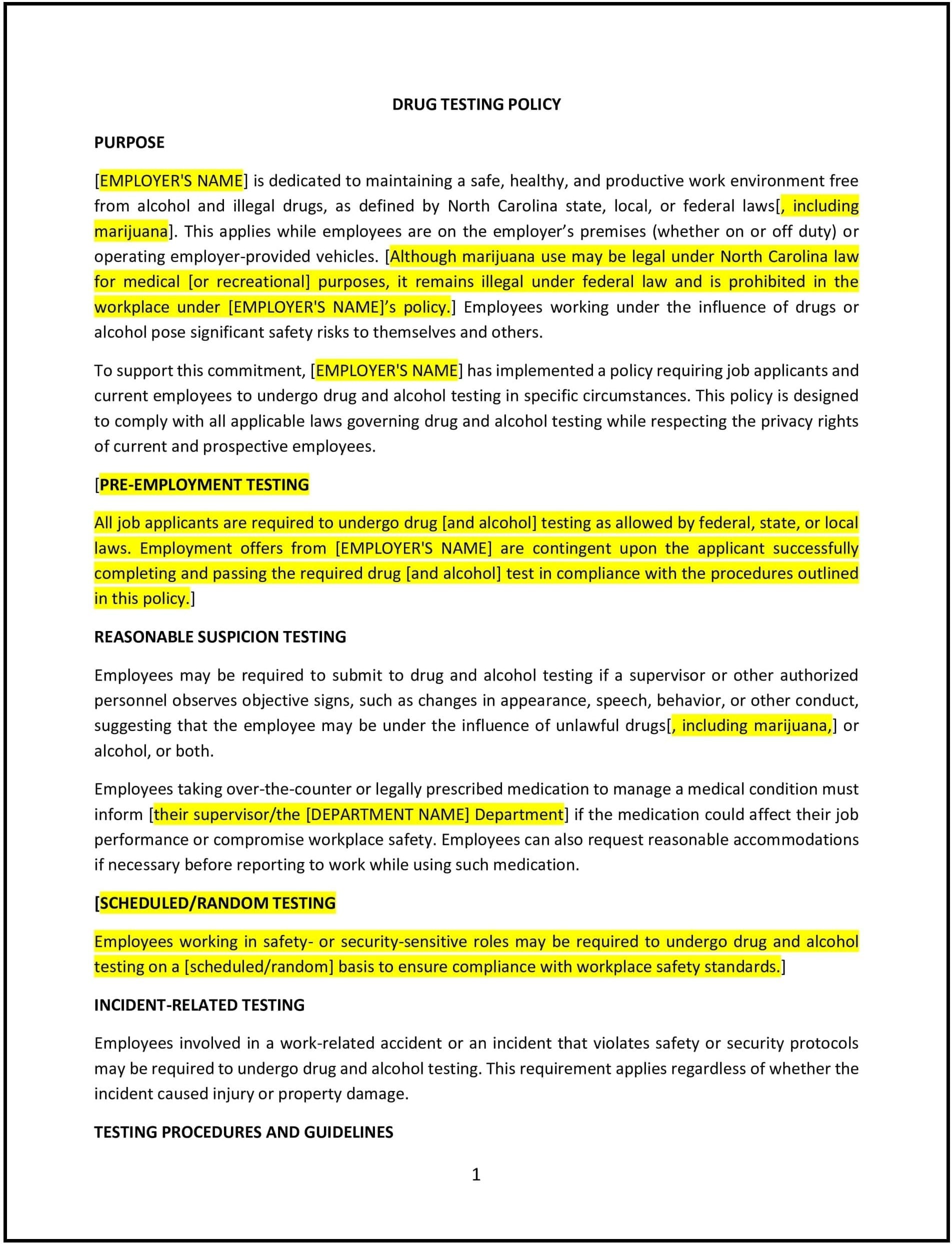Drug testing policy (North Carolina): Free template
Got contracts to review? While you're here for policies, let Cobrief make contract review effortless—start your free review now.

Customize this template for free
Drug testing policy (North Carolina)
A drug testing policy helps North Carolina businesses establish procedures for testing employees for drug use. This policy defines when and how drug testing will be conducted, who will be tested, and the consequences of testing positive for illegal substances. The policy is designed to ensure workplace safety, maintain productivity, and comply with both state and federal regulations.
By adopting this policy, businesses can maintain a safe and productive workplace while ensuring that employees understand the company’s stance on drug use.
How to use this drug testing policy (North Carolina)
- Define testing circumstances: Specify when employees will be subject to drug testing, such as pre-employment, random testing, after workplace accidents, or when there is reasonable suspicion of drug use.
- List prohibited substances: Clearly define which drugs or controlled substances are prohibited in the workplace, including alcohol, illegal drugs, and prescription medication abuse.
- Establish testing procedures: Outline the procedures for conducting drug tests, including where tests will take place, the method of testing, and the responsibilities of employees and employers.
- Address consequences of testing positive: Define the consequences for employees who test positive for drugs, including disciplinary actions, suspension, or termination.
- Reflect North Carolina-specific considerations: Ensure that the policy complies with North Carolina’s laws regarding drug testing, including any limitations on testing, the right to refuse testing, or other state-specific protections.
Benefits of using this drug testing policy (North Carolina)
This policy provides several benefits for North Carolina businesses:
- Promotes workplace safety: Drug testing helps identify employees who may pose a safety risk due to drug impairment, particularly in safety-sensitive jobs.
- Enhances productivity: By ensuring employees are drug-free, businesses can reduce absenteeism, errors, and workplace accidents, leading to improved productivity.
- Demonstrates commitment to employee health: A drug-free workplace promotes the well-being of employees by discouraging substance abuse and encouraging healthy behaviors.
- Reduces legal risks: The policy helps ensure that businesses comply with North Carolina’s drug-testing laws and protect themselves from liability in cases of accidents or legal disputes.
- Maintains a professional work environment: A drug-free policy helps preserve a productive, professional work environment that supports business goals and maintains a positive workplace culture.
Tips for using this drug testing policy (North Carolina)
- Communicate the policy clearly: Ensure that all employees are informed about the drug testing policy, including when and why testing will occur.
- Ensure consistency: Apply the drug testing policy consistently across all employees, ensuring that all tests are conducted fairly and legally.
- Respect privacy: Ensure that drug testing procedures are conducted in a way that respects employees’ privacy while maintaining the integrity of the testing process.
- Review the policy regularly: Periodically review the policy to ensure it complies with North Carolina’s drug testing laws and remains relevant to the company’s evolving practices.